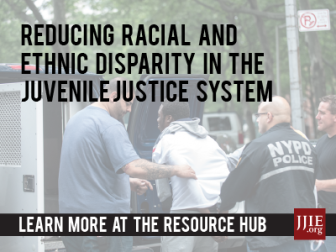 Parens partriae, a legal term meaning “parent of the country,” entrusts the state with legal guardianship of youth in the justice system, defending their best interests as a real parent would.
Parens partriae, a legal term meaning “parent of the country,” entrusts the state with legal guardianship of youth in the justice system, defending their best interests as a real parent would.
However, California’s passing of Proposition 21, a law allowing prosecutors to try youth as young as 14 as adults in a process called direct file, raises a crucial question about the parenting abilities of the state. With data linking juvenile crime to poverty and trauma and tracking the increased recidivism rates of youth tried in adult court, California and the 34 other states practicing direct file are not acting as adequate guardians.
The flaws of direct filing are surfacing, and states are trying to mend its detrimental effects. In 2012, Colorado passed a bill allowing youth convicted as adults to stay in juvenile detention facilities. In March 2015, the Supreme Court of Florida, the state holding the most youth in adult prisons, ruled that youth may not be given life sentences, even if convicted of murder.
California policymakers are targeting the harmful effects of its Proposition 21 this year through pending legislation that would expand data collection and the fitness criteria process.
Senate Bill (SB) 498 would require California’s Department of Justice to report on juvenile statistics, including the number of direct-filed youth, sentencing data and demographic information about the county of commitment. This is intended to improve understanding of transfers, direct files and sentencing consequences to better inform decision-making in the future.
 This data is necessary to track the inappropriate use of direct filing in California. For example, youth of color are disproportionately affected by direct file. In 2007, 58 percent of youth sentenced to adult prison were African American and, from 2000 to 2008, Latino youth sentenced to adult prisons increased from 12 to 20 percent.
This data is necessary to track the inappropriate use of direct filing in California. For example, youth of color are disproportionately affected by direct file. In 2007, 58 percent of youth sentenced to adult prison were African American and, from 2000 to 2008, Latino youth sentenced to adult prisons increased from 12 to 20 percent.
Additionally, SB 382 was proposed to expand the criteria of fitness hearings to consider youth’s family and community environment, and childhood trauma. The majority of justice-involved youth suffer trauma from violence, poverty and/or mental illness. In 2008, 90 percent of justice-involved youth in the United States reported exposure to traumatic experiences, 70 percent meet the criteria for a mental health disorder and 30 percent meet the criteria for post-traumatic stress disorder (PTSD).
Sentencing youth with these unique needs to adult court through direct file robs them of the more focused programming, including mentoring, counseling and educational services, available in juvenile facilities and does not address the real causes of juvenile crime, making direct file an ineffective public safety measure.
A former ward of the state Department of Juvenile Justice noted that due to lack of programming, fellow inmates were illiterate, violent and sometimes suicidal. Youth tried as adults are 34 percent more likely to commit violent crimes than those retained in the juvenile court.
Direct file also creates collateral problems for youth that the juvenile justice system was created to dissolve. Youth convicted of adult offenses cannot seal their records the same way that juvenile records can be sealed, and having a criminal record poses difficulties in finding housing and employment — crucial factors in reducing recidivism.
A consistent problem with California’s use of direct file not addressed by these bills is the inconsistent implementation by counties. Youth who commit the same offense in two different counties could serve life in prison in one county and not the other. This system of “justice-by-geography” is unfortunately found between states, too.
Proposition 21, like other direct file legislation, was initiated on the assumption that violent youth behaviors were rapidly increasing. In California, it was assumed that juvenile crime accounted for 75 to 80 percent of all arrests for violent crime when it only accounted for 11 percent. In fact, between 1978 and 2013 the arrest rates of teens 14 to 17 decreased by 71 percent, suggesting a continued drop in arrests in the future.
Direct file, normalized nearly 90 years after lawmakers, state officials and social activists discovered institutionalizing youth as adults was detrimental to individuals and society at large, confirms how much the public is misinformed about juveniles, and reflects the widespread need of awareness about juvenile justice. Direct file undermines the foundation of the juvenile justice system’s main focus: helping youth.
Lauren Barretto is a recent graduate of San Francisco State University and a current member of the policy team at the Center on Juvenile and Criminal Justice.

Pingback: Assessing Trauma in Kids Just Got A Little Better; News Roundup | Reclaiming Futures